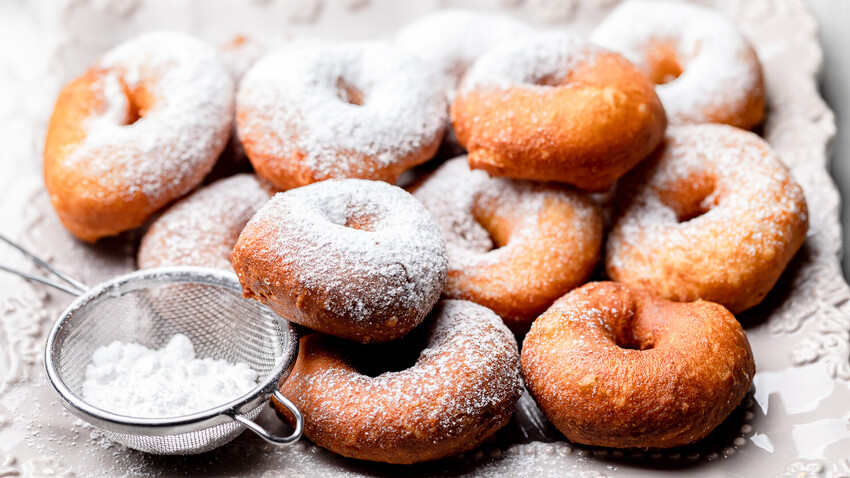
If you want to treat yourself to something sweet and buttery, try Russian “pyshki”.
Yulia MulinoPyshki are ring-shaped pieces of dough that are fried in hot oil. Then, these soft rings that acquire a golden crispy crust are sprinkled with powdered sugar. What could be more tempting and refreshing during cold weather?!
In St. Petersburg (former Leningrad), pyshki have become one of the city’s gastronomical symbols. No wonder that there are many places where you can buy them; but there is one place in particular that stands out from the rest. It’s the famous "Pyshechnaya" (a cafe that specializes in pyshki) on Bolshaya Konyushennaya Street, where they have been baking pyshki since 1958.
After all these years, it’s still open and gathers long lines of visitors every day. In fact, it’s one of the few public eateries from the Soviet era that has survived until today. It's a favorite spot for students, urban hikers and city guests. The pyshki are inexpensive (about $0.30 for each) and authentic. Lovers of this delightful pastry usually take and devour 3-4 pyshki in one sitting.
The St. Petersburg pyshki are made on Soviet-era machines according to traditional recipes. You can eat them at a table with coffee or tea inside the cafe, or take them to go in a paper bag and enjoy them in the park.
And now, here’s the really great news. You don't have to go to St. Petersburg to experience this extraordinary Soviet-era doughnut. To make them you need some simple ingredients that can easily be found at home. You can prepare your own delicious pyshki, hot and soft inside with a crispy crust outside. By making them at home, three main advantages are that you won’t have to buy a plane ticket to Russia and you won’t have to stand in line, and perhaps most importantly, you can determine the amount of powdered sugar yourself!
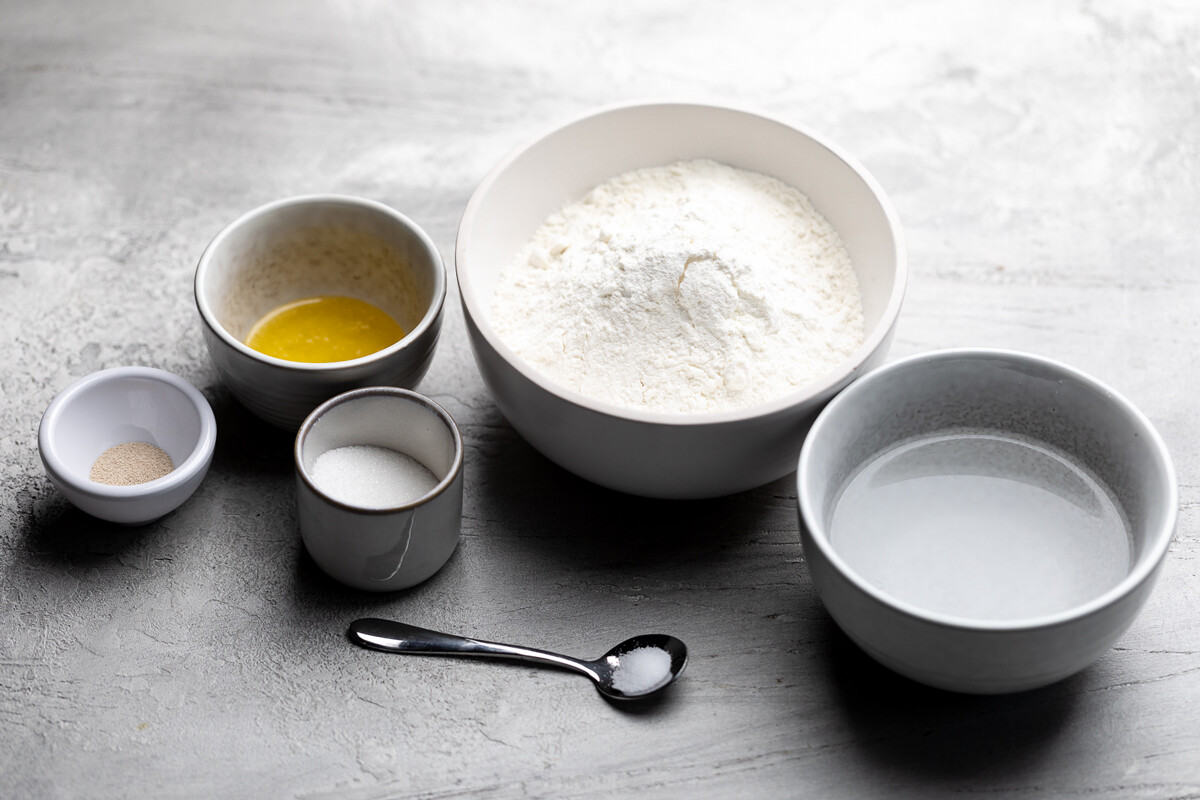
1. Dissolve the yeast and sugar in warm water.
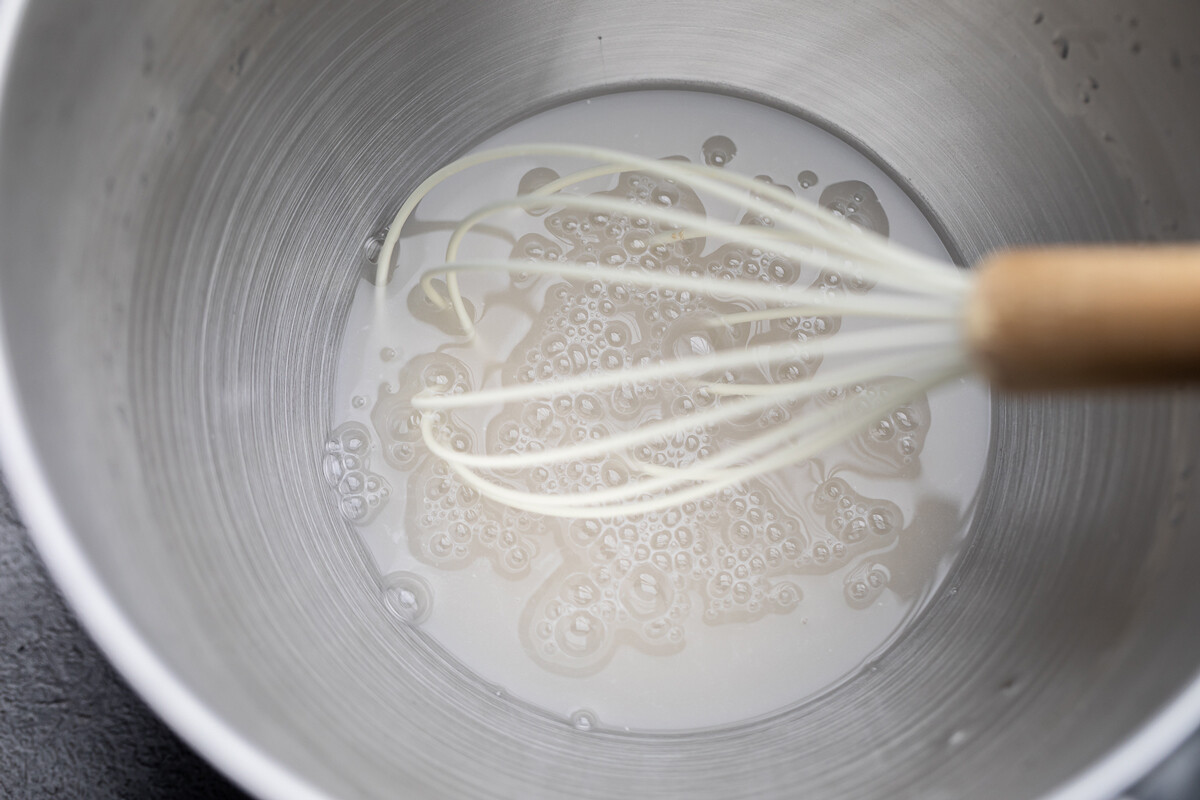
2. Add melted butter.
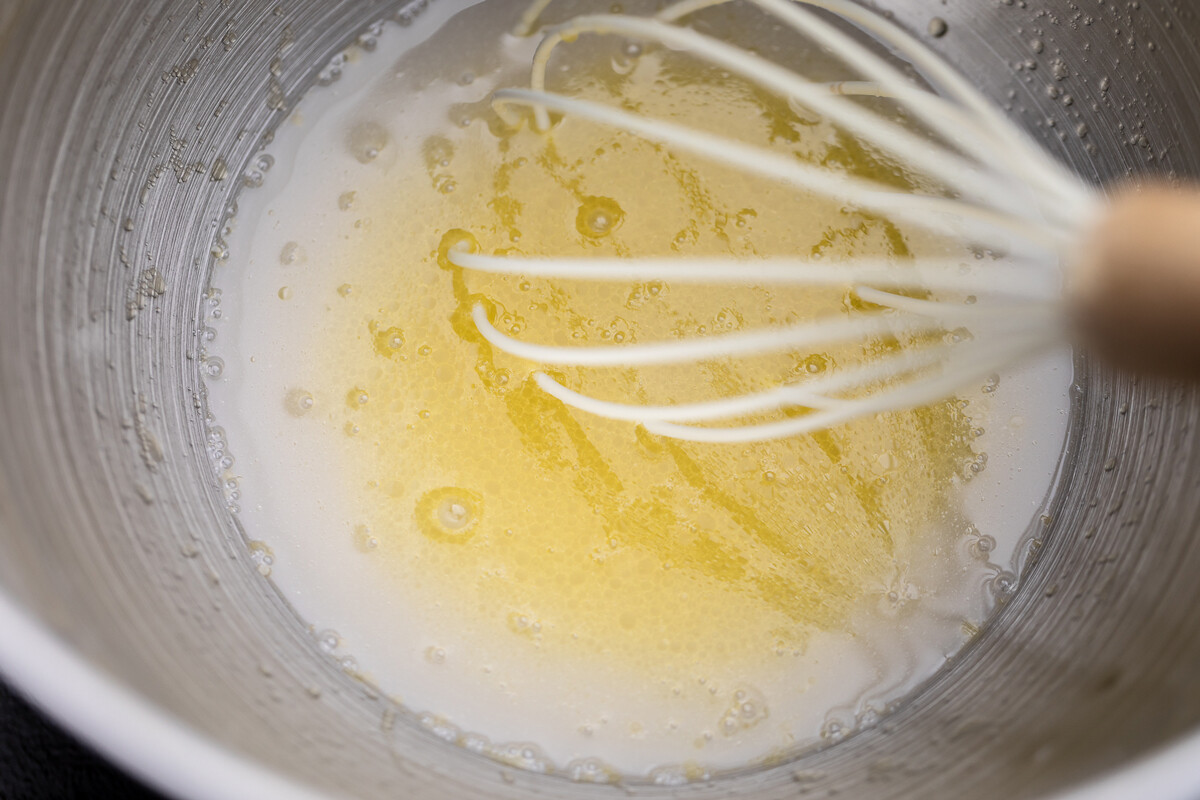
3. Pour in flour and salt.
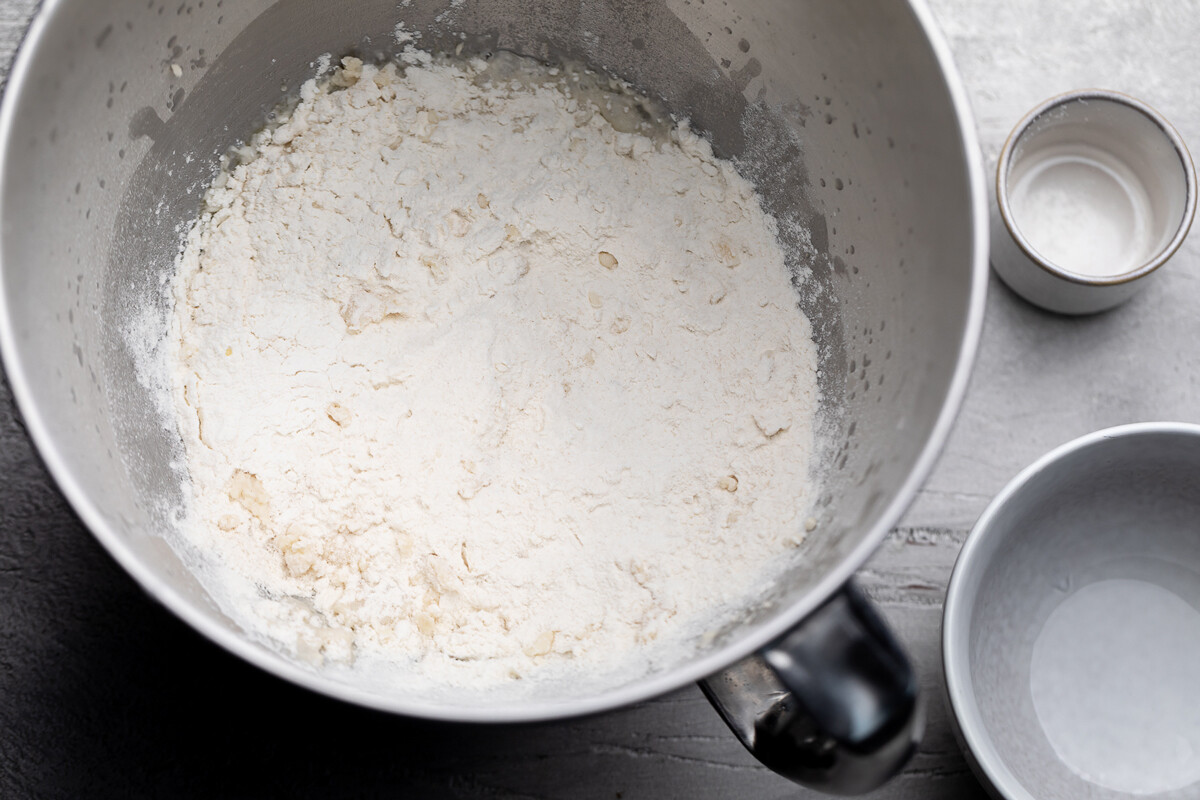
4. Knead the dough. It is better to do it in a mixer, because the dough will turn out liquid and sticky to your hands. This is how it should be. Additional flour is not required to make the dough pieces light and airy. If you are kneading by hand, it is better to do it with a silicone scraper or spatula.
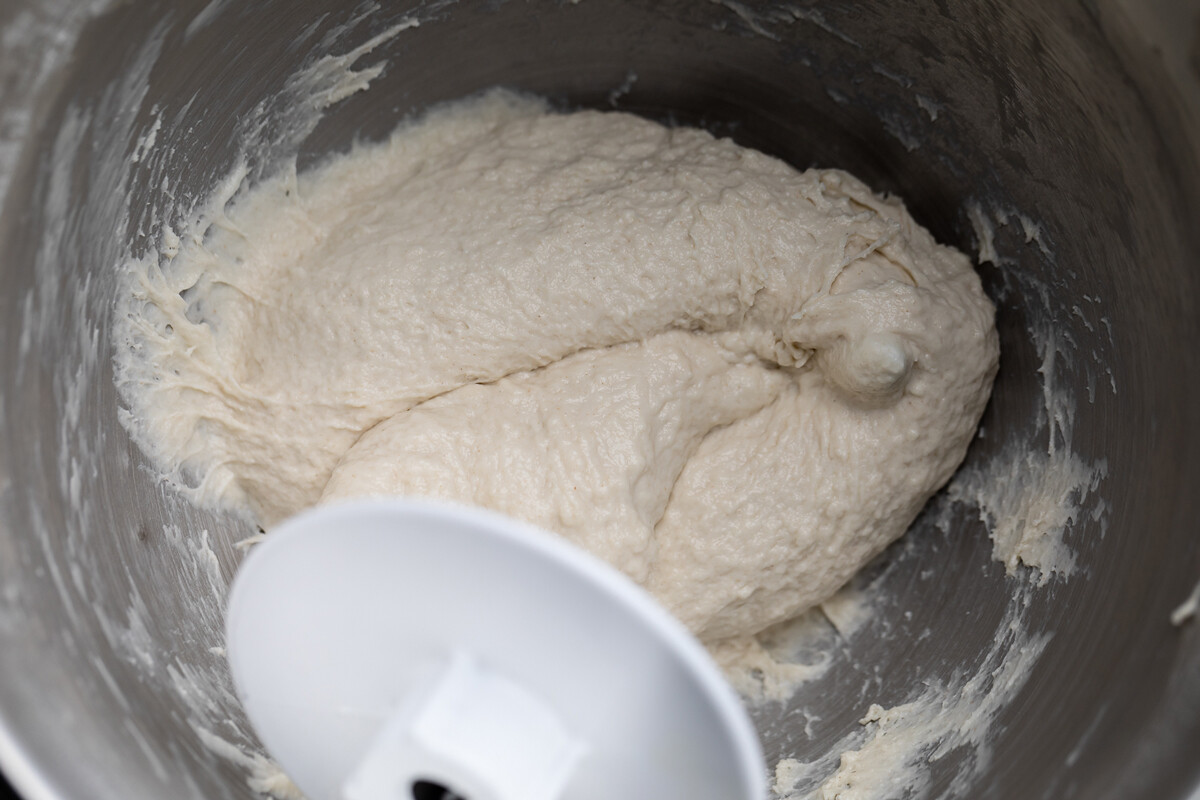
5. Grease a deep bowl with vegetable oil and put the dough into it. Cover with cling film and let it rise for an hour.
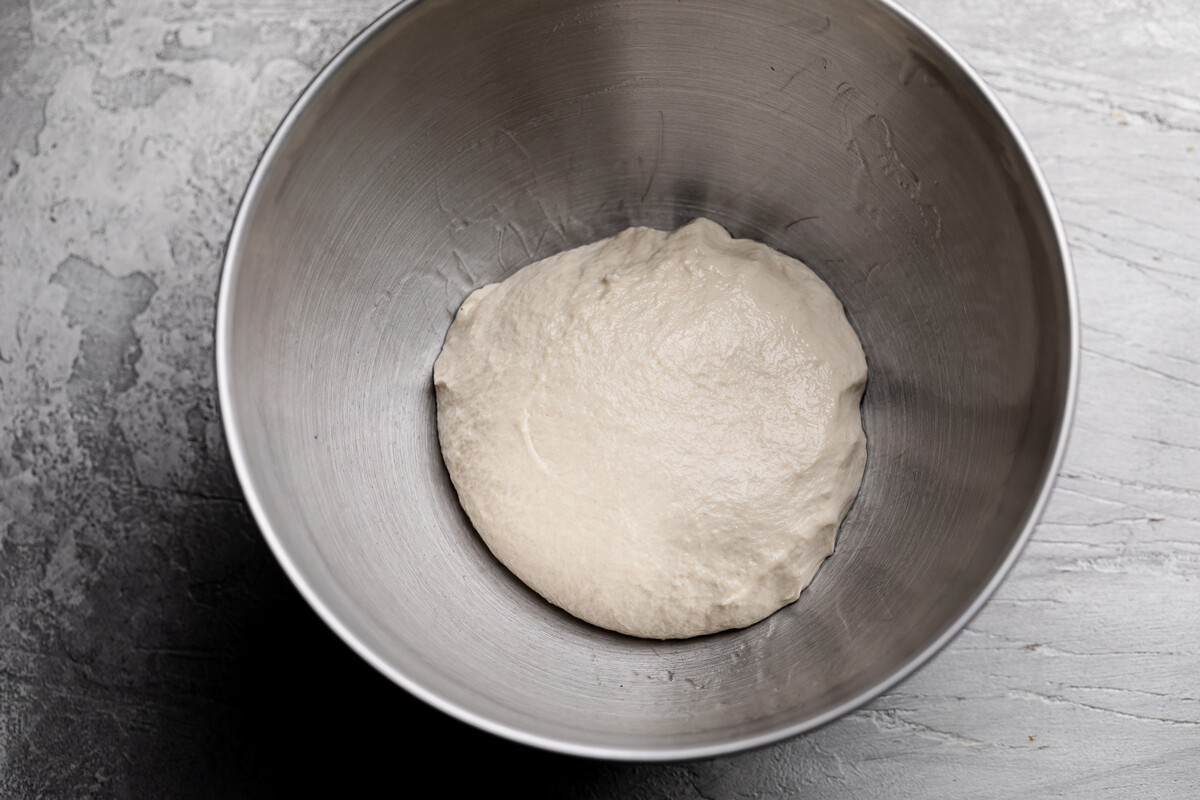
6. Intensively knead the dough.
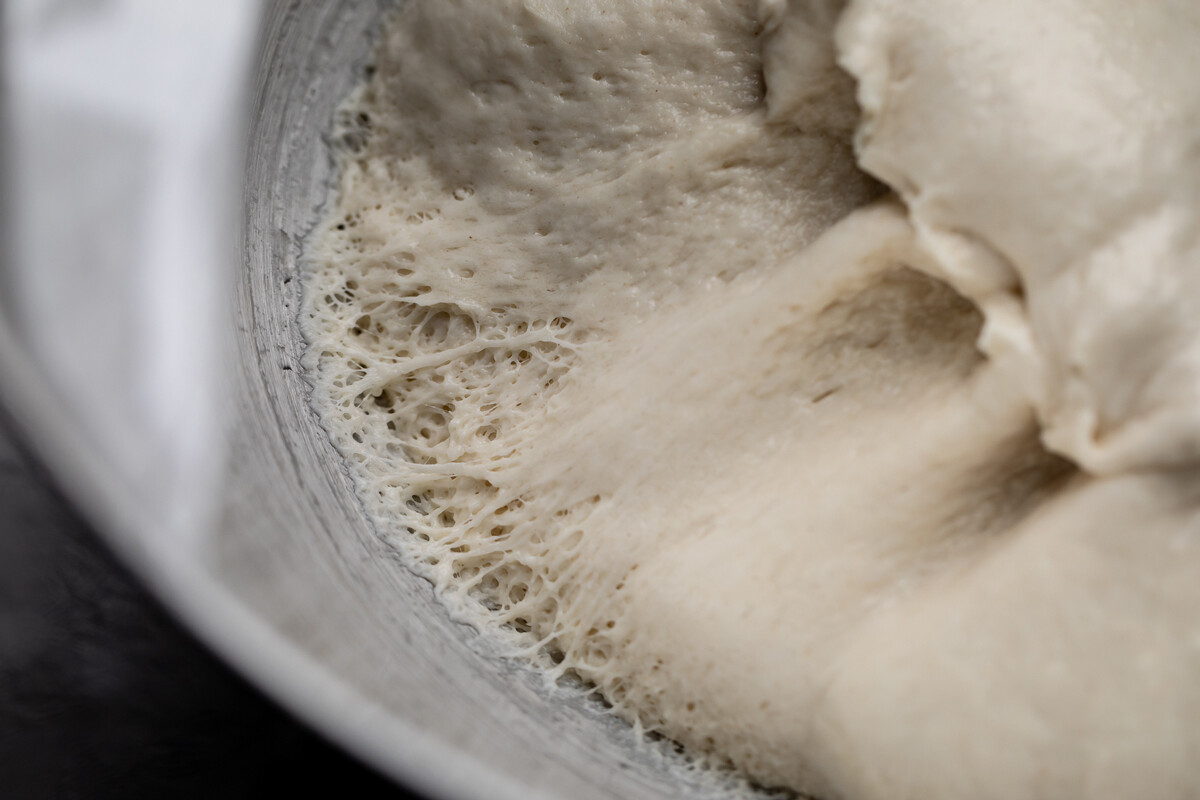
7. Let it sit for another hour.
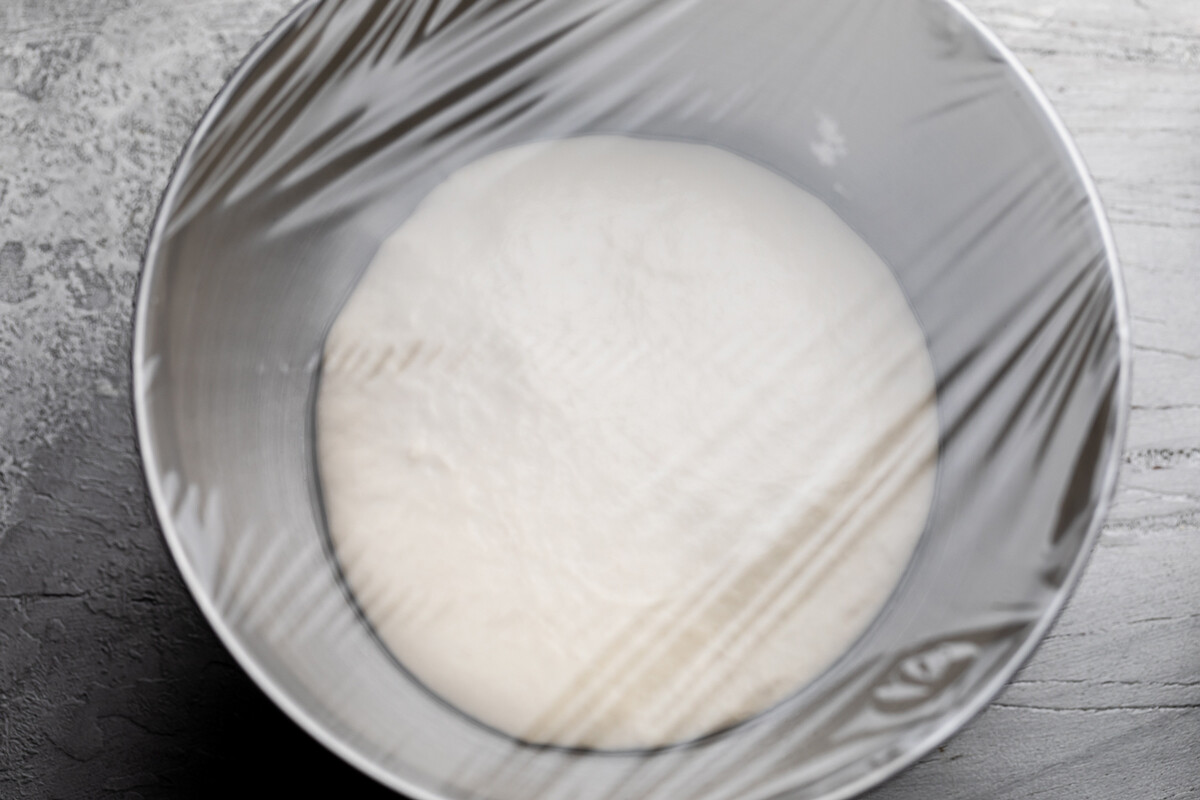
8. While working with the dough, grease your hands with vegetable oil. Do not use flour because it will burn in the oil when frying. Divide it into small balls. I make them 30 g each. Put them on a greased surface and leave to rise for 15-20 minutes.
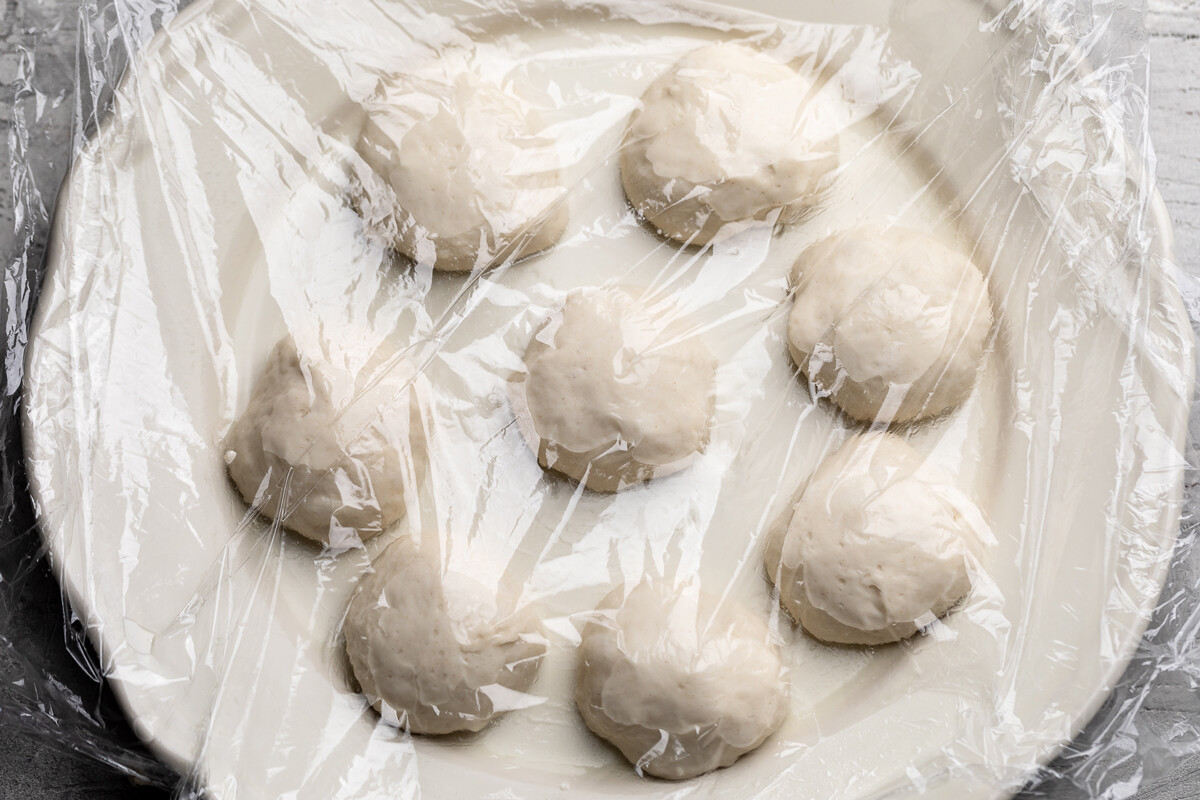
9. Heat the sunflower oil in a deep saucepan (you can check by using a wooden skewer; if there are bubbles, then the oil is ready). Use your thumb and middle finger to make a hole in the middle of the doughnut.

10. Fry on both sides, turning constantly.
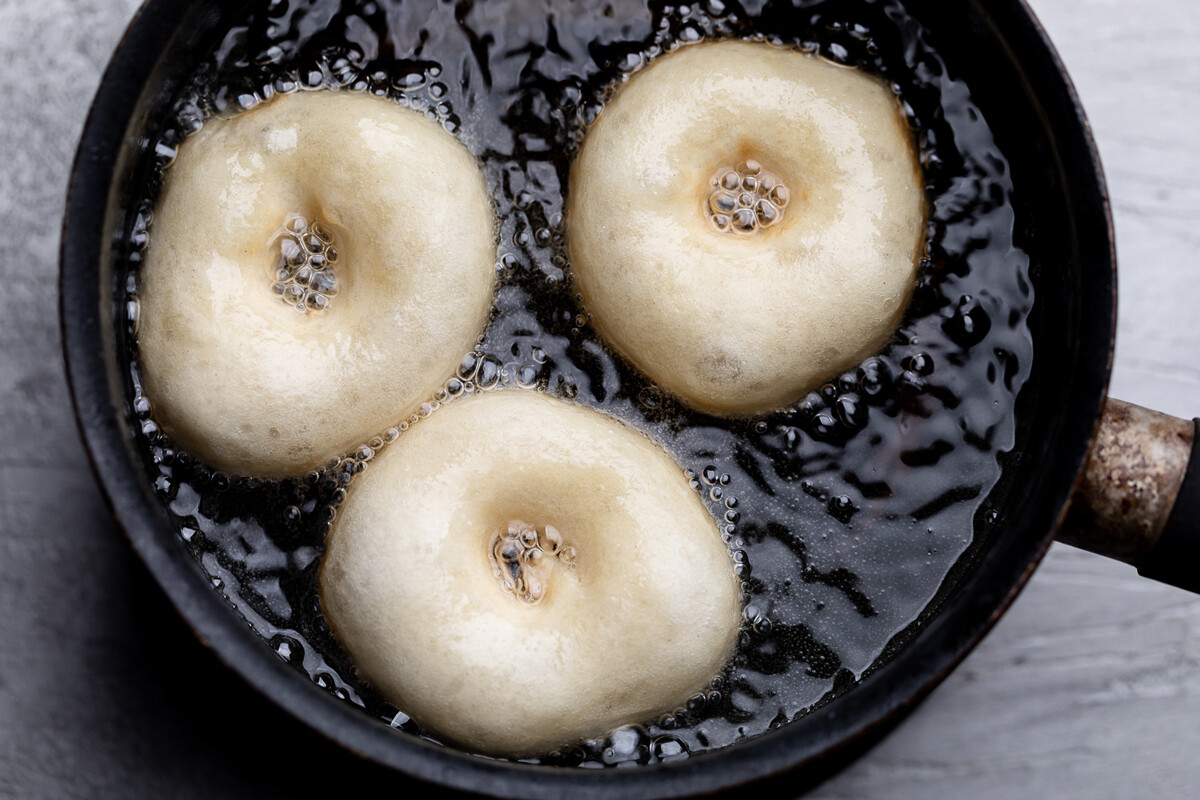
11. Remove the ready pyshki and place them on a paper towel.
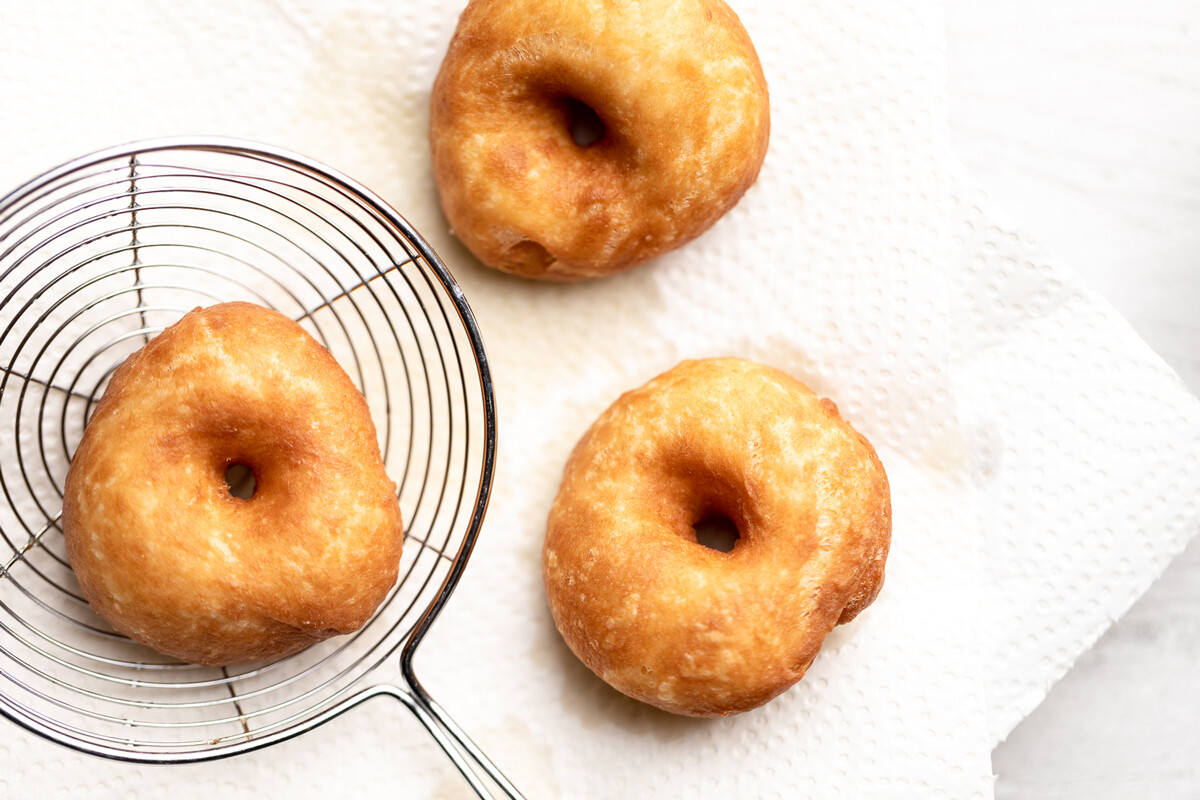
12. Sprinkle the pyshki with powdered sugar before serving.
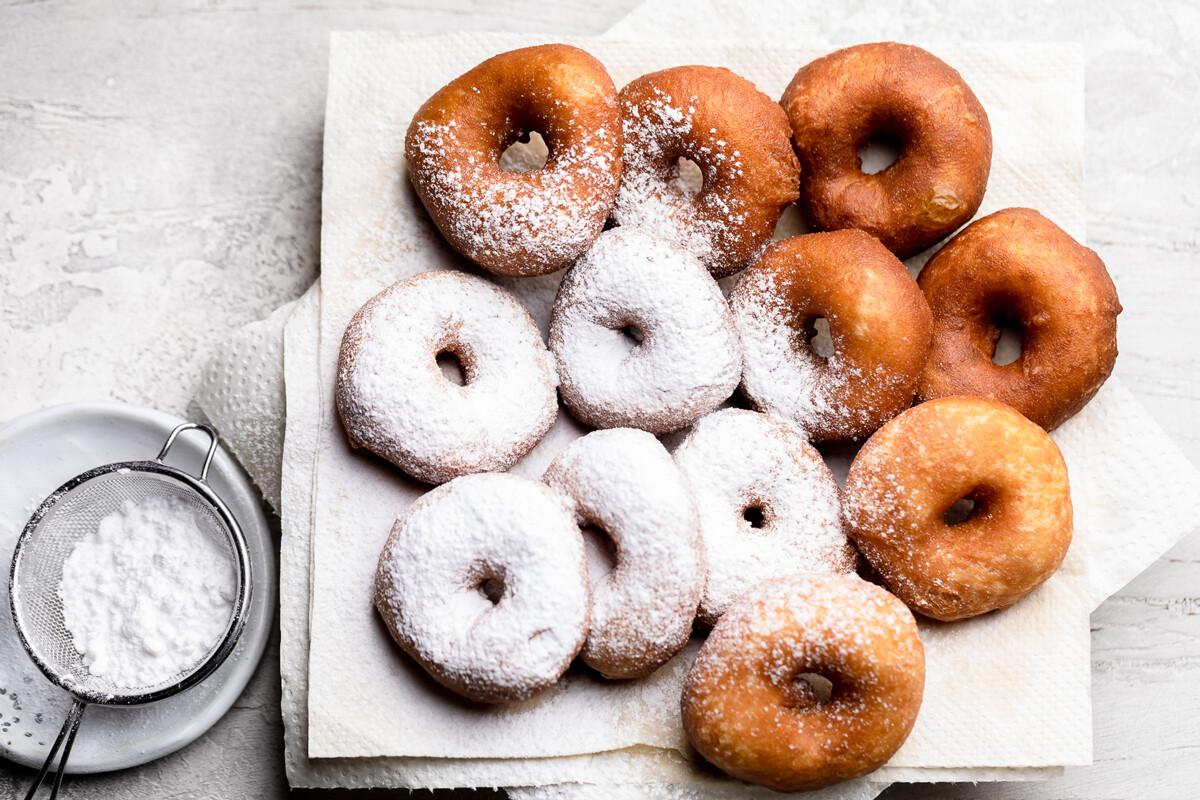
13. Serve hot. Enjoy!
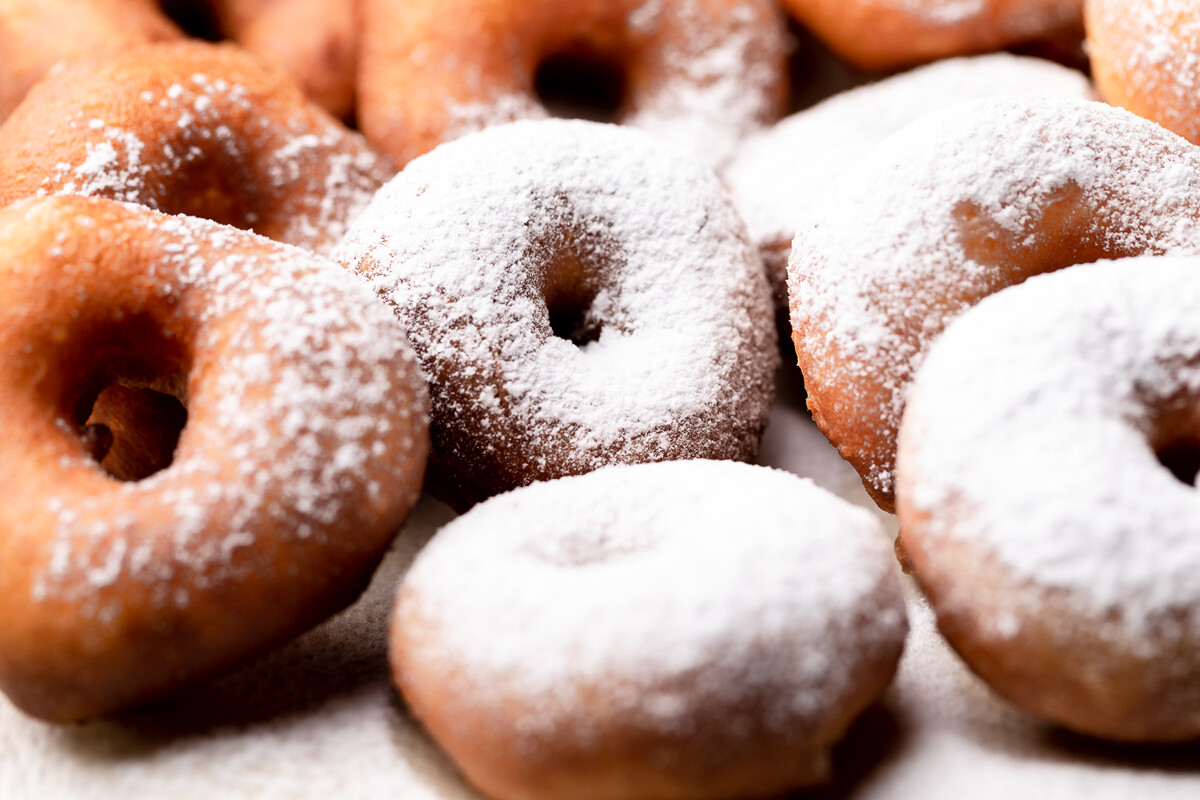
Dear readers,
Our website and social media accounts are under threat of being restricted or banned, due to the current circumstances. So, to keep up with our latest content, simply do the following:
Subscribe to our Telegram channels: Russia Beyond and The Russian Kitchen
Subscribe to our weekly email newsletter
Enable push notifications on our website
Install a VPN service on your computer and/or phone to have access to our website, even if it is blocked in your country
If using any of Russia Beyond's content, partly or in full, always provide an active hyperlink to the original material.
Subscribe
to our newsletter!
Get the week's best stories straight to your inbox